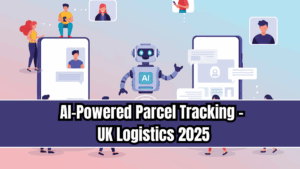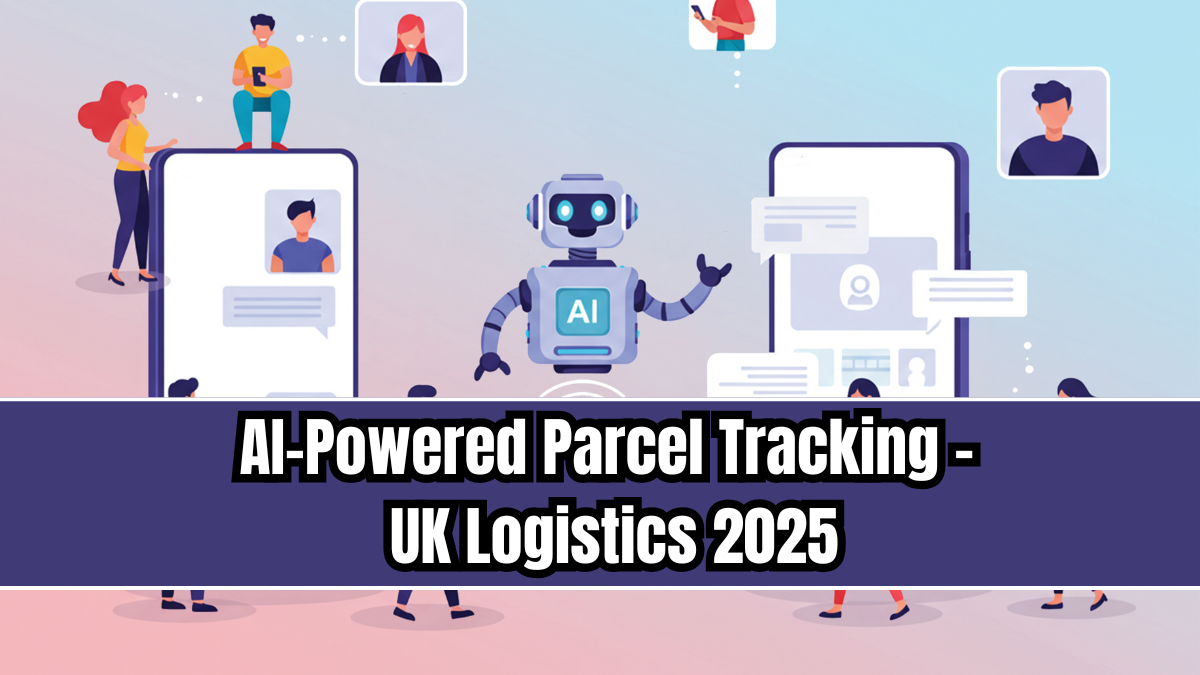In 2025, logistics companies in the UK are embracing artificial intelligence to transform delivery services. The integration of Parcel Tracking Tech 2025 is making the industry faster, smarter, and more transparent. With AI-powered logistics tools, customers can now track their parcels in real time with high accuracy, while businesses benefit from reduced costs, optimized routes, and fewer delivery errors.

Why AI in Parcel Tracking Is a Game Changer
Traditional parcel tracking systems relied on barcode scans at checkpoints. While effective, they often left customers with vague updates such as “in transit” or “out for delivery.” AI has changed this model entirely.
Today, AI-powered parcel tracking provides:
-
Real-time visibility of packages at every step.
-
Predictive delivery times using traffic and weather data.
-
Automated alerts for delays, reroutes, or missed deliveries.
-
Smarter resource allocation to reduce wasted trips.
-
Better customer satisfaction through transparency and accuracy.
This shift is helping courier companies meet the rising expectations of e-commerce and business clients.
How AI Is Transforming UK Logistics
The UK logistics sector in 2025 is witnessing rapid digitalization. AI plays a central role in several areas of parcel tracking:
-
Predictive Analytics: Systems analyze millions of data points to forecast exact delivery times.
-
Dynamic Route Optimization: AI chooses the fastest delivery route based on traffic, weather, and delivery density.
-
Image Recognition: Automated parcel scans ensure accuracy without manual entry.
-
Customer Communication: Chatbots and smart apps provide real-time updates and responses.
-
Fraud Detection: AI flags suspicious activity, preventing package theft and loss.
These innovations ensure smoother logistics operations and greater reliability for customers.
Benefits for Customers
For customers, the impact of AI-powered parcel tracking is visible in daily life.
-
Accurate Delivery Estimates: Instead of vague time windows, customers receive down-to-the-minute predictions.
-
Interactive Tracking Maps: Apps now display the delivery vehicle’s live location.
-
Automatic Notifications: Customers are updated instantly on any changes or delays.
-
Greater Confidence: Reduced cases of lost or misplaced packages.
-
Flexible Rescheduling: AI systems allow quick changes in delivery times and addresses.
The result is greater trust in courier services and improved overall satisfaction.
Benefits for Courier Companies
The logistics industry also benefits enormously from AI technology.
-
Cost Savings: Optimized routes reduce fuel and vehicle maintenance expenses.
-
Improved Efficiency: Deliveries are completed faster, covering more parcels per route.
-
Reduced Errors: Automation cuts down human mistakes in scanning and labeling.
-
Sustainability: Smart route planning lowers carbon emissions.
-
Competitive Advantage: Companies offering AI-powered tracking attract more clients.
For large players like Royal Mail, DPD, and DHL, AI is now a core part of their service offerings.
Real-Life Use Cases in the UK
In 2025, several UK courier firms are already using AI parcel tracking systems:
-
DPD Predict: Offers customers exact one-hour delivery windows powered by AI analytics.
-
Royal Mail SmartTrack: Provides real-time updates with GPS-based parcel tracking.
-
CitySprint Healthcare Logistics: Uses AI to ensure on-time medical deliveries where timing is critical.
-
Amazon UK Logistics: Deploys AI-driven predictive delivery systems for Prime members.
These examples show how AI is being integrated across industries, from retail to healthcare.
Challenges in Implementation
Despite its benefits, AI in parcel tracking faces challenges.
-
High Costs: Smaller courier firms struggle with investment in AI systems.
-
Data Privacy Concerns: Storing real-time location data raises security issues.
-
Training Needs: Employees must be trained to use new digital systems.
-
Infrastructure Gaps: Rural areas may lack reliable connectivity for real-time updates.
Addressing these challenges is key to ensuring that AI-powered logistics benefits every part of the UK.
The Future of AI in Logistics
The future of parcel tracking in the UK looks promising. By 2030, experts predict the widespread use of AI combined with Internet of Things (IoT) devices. Drones and autonomous vehicles will further improve real-time tracking accuracy. Blockchain may also integrate with AI to create tamper-proof delivery records. These advancements will make logistics faster, safer, and more sustainable.
Final Thoughts
The AI-Powered Parcel Tracking – UK Logistics 2025 showcases how artificial intelligence is revolutionizing the courier industry. By improving accuracy, efficiency, and customer experience, AI is helping logistics companies meet modern demands. As technology becomes more affordable and widely adopted, same-day and real-time parcel tracking will soon become standard for all UK deliveries.
FAQs
How is AI improving parcel tracking in 2025?
AI provides real-time updates, predictive delivery times, and smart routing for faster, more accurate tracking.
Which courier companies in the UK use AI tracking?
Companies like DPD, Royal Mail, CitySprint, and Amazon UK are already using AI-based tracking systems.
What benefits do customers get from AI-powered logistics?
They enjoy accurate delivery windows, live tracking maps, and instant notifications for delays or changes.
What are the challenges of adopting AI in logistics?
High setup costs, data security concerns, and rural connectivity issues are major challenges.
What is the future of AI parcel tracking?
The future includes integration with IoT, blockchain, drones, and autonomous vehicles for even smarter logistics.
Click here to know more.
